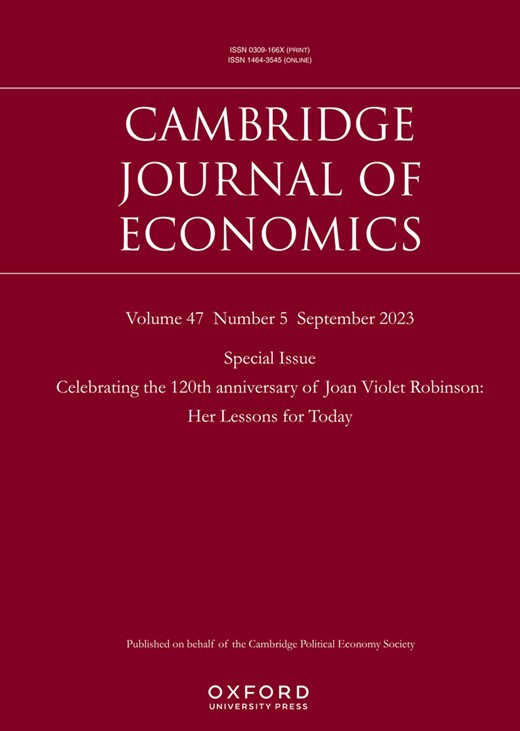-
Views
-
Cite
Cite
Nuno Ornelas Martins, Joan Robinson and the reconstruction of economic theory, Cambridge Journal of Economics, Volume 47, Issue 5, September 2023, Pages 883–907, https://doi.org/10.1093/cje/bead018
Close - Share Icon Share
Abstract
Joan Robinson provided numerous contributions to economic theory, ranging from her earlier approach to imperfect competition to her participation in the Keynesian revolution, which had a significant influence in the Cambridge heterodox wing, and Post-Keynesianism. But towards the end of her life, her rejection of received theories was great enough to be often interpreted as a form of theoretical nihilism. However, at this stage she also outlined a radical project for a reconstruction of economic theory, drawing on her notion of historical time, while placing distribution at the centre of economic theory. This later project of a reconstruction of economic theory is revisited here, focussing on the various difficulties it faced, and its overall significance and impact.




